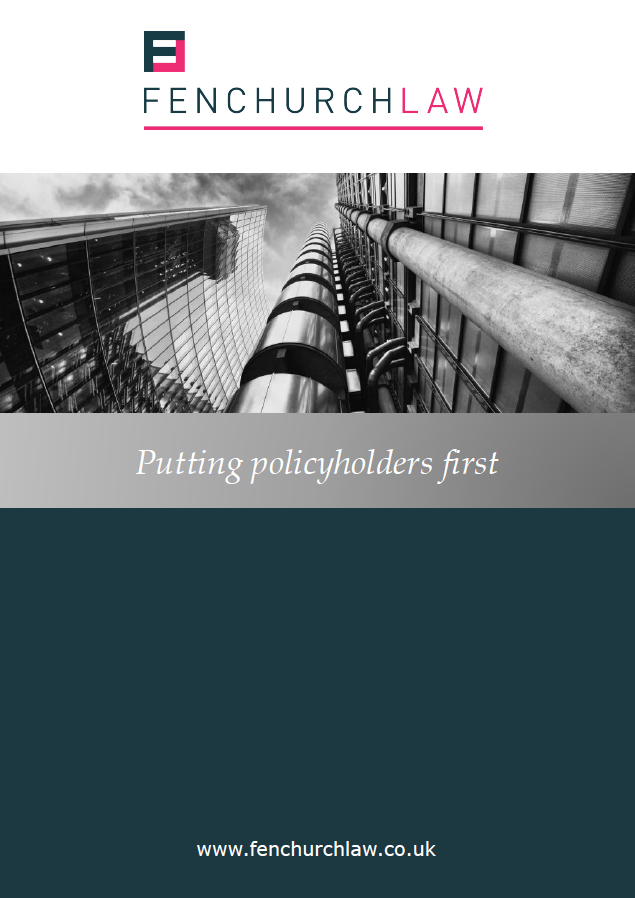
“The Worst of Both Worlds”: Spire Healthcare Ltd v RSA
2016 was a bumper year for aficionados of aggregation cases. (One might say that it saw a series of related cases…) In April the Court of Appeal in AIG v Law Society considered aggregation under the Solicitors’ Minimum Terms, with the outcome of AIG’s expedited appeal to the Supreme Court expected this month or next. In October, the Commercial Court in MIC Simmonds v AJ Gammell had to decide whether claims for respiratory injuries suffered by thousands of rescue workers after 9/11 arose out of one event. And just before Christmas the Commercial Court, in Spire Healthcare Ltd v RSA, again considered aggregation, this time in the context of a private healthcare company facing claims from over 700 patients alleging that one particular surgeon had carried out unnecessary and/or negligent procedures.
The case involved a combined liability policy taken out by Spire, which included cover for medical negligence. Put crudely, the intention of the policy seems to have been to confer an indemnity limit of £10m for any one claim together with an annual aggregate cap of £20m. There was also a badly drafted clause, whereby all claims attributable to one source or original cause would attract only one “Limit of Indemnity”.
Thus, if that clause operated as a conventional aggregation clause, the policyholder could only recover £10m from insurers, since all 700 claims would be treated a single claim. If the clause didn’t have that effect, it could recover £20m.
In addition, the policyholder and insurers disagreed about whether aggregation applied to the £25,000 each-and-every-claim excess. The policyholder argued that it did, and that it only had to pay the £25,000 once. The insurers disagreed, arguing that the excess was payable in respect of each claim (albeit, as it happened, capped at £750,000 in all).
The case involved some interesting comments by the Judge (HHJ Waksman QC) about principles of policy construction. He confirmed, as had the Court of Appeal in the AIG case, that aggregation clauses should be construed neutrally, without any preconceptions that they should work in one or other of the parties’ favour. He also held that, just because a particular phrase or clause was redundant or duplicative in one part of the policy, that didn’t mean that it had no function or effect elsewhere in the policy.
Desperately interesting though this might all be to insurance lawyers, brokers and underwriters, the outcome of the case was disastrous from the policyholder’s perspective. The Judge held that the clause in question did mean that there was indeed only £10m of cover available. To rub salt into the policyholder’s wounds, the Judge also rejected its fall-back contention that, in that case, there should be “parity of aggregation” and that it should be implied – in the absence of an express provision to that effect – that the 700 claims, unquestionably linked as they were, should attract only one excess. So the policyholder, which had fought the case arguing that there was £20m of cover and just one £25,000 excess due, was held to be entitled to just £10m of cover and liable to pay £750,000-worth of excesses.
I understand that, predictably enough, the policyholder is applying to the Court of Appeal for permission to appeal.
See: Spire Healthcare Limited v Royal & Sun Alliance Insurance plc [2016] EWHC 3278 (Comm) http://www.bailii.org/ew/cases/EWHC/Comm/2016/3278.html
Jonathan Corman is a partner at Fenchurch Law.
Other news
Timing is everything – Makin v QBE and the cost of not complying with a condition precedent
3 July 2025
This recent decision from the High Court provides a powerful reminder of the consequences of not complying with a…
You may also be interested in:
Archives
Categories
- Construction & Property Risks
- News
- International Risks
- Legislation
- Financial & Professional Risks
- Case Law
- Professional Risks
- Press Release
- Uncategorized
- The Good, the Bad and the Ugly
- Fenchurch Law Webinars
- Stonegate
- Newsletter
- Events
- Webinars
- Comparing German and English Insurance Law – A Series
- Construction Risks
- Operations
- Business Development



